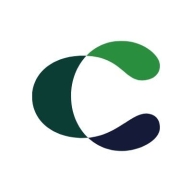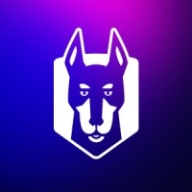

Contrast Security Assess and Snyk are leading competitors in application security, each aimed at identifying and mitigating vulnerabilities in software. While both have significant advantages, Snyk appears to have an edge due to its extensive integration capabilities and automation features.
Features: Contrast Security Assess boasts features like real-time vulnerability detection, integration within the software development lifecycle, and detailed security insights. It excels in interactive application security testing (IAST) and offers impressive accuracy in minimizing false positives. Snyk offers automated fix suggestions, integration with a wide array of development tools, and container security, providing seamless security management for developers.
Room for Improvement: Contrast Security Assess could enhance its ease of deployment and offer broader integration options within diverse development environments. Additionally, simplifying customer service support could improve user experience. Conversely, Snyk could expand its vulnerability database to rival larger competitors and simplify some advanced settings for less experienced users. It might also benefit from refining its on-premise solutions to match cloud offerings in terms of cost-effectiveness and simplicity.
Ease Of Deployment and Customer Service: Snyk offers a user-friendly deployment model with numerous integration options that adapt to various development environments, complimented by strong customer support. In contrast, Contrast Security Assess provides comprehensive onboarding resources but may pose challenges during initial setup, potentially requiring more time for customers to adapt.
Pricing and ROI: Contrast Security Assess can involve significant initial setup costs, potentially impacting ROI unless its specific features align well with business needs. Snyk's pricing is considered more favorable with plans that scale to accommodate different business sizes and needs. Its automation capabilities help in reducing remediation time, often delivering a higher ROI by simplifying security management processes.
| Product | Market Share (%) |
|---|---|
| Snyk | 6.3% |
| Contrast Security Assess | 0.8% |
| Other | 92.9% |


| Company Size | Count |
|---|---|
| Small Business | 2 |
| Midsize Enterprise | 3 |
| Large Enterprise | 6 |
| Company Size | Count |
|---|---|
| Small Business | 20 |
| Midsize Enterprise | 9 |
| Large Enterprise | 21 |
Contrast Security is the world’s leading provider of security technology that enables software applications to protect themselves against cyberattacks, heralding the new era of self-protecting software. Contrast's patented deep security instrumentation is the breakthrough technology that enables highly accurate assessment and always-on protection of an entire application portfolio, without disruptive scanning or expensive security experts. Only Contrast has sensors that work actively inside applications to uncover vulnerabilities, prevent data breaches, and secure the entire enterprise from development, to operations, to production.
Snyk's AI Trust Platform empowers developers to innovate securely in AI-driven environments, ensuring rapid and secure software development with enhanced policy governance.
Snyk’s platform integrates AI-ready engines across the software development lifecycle, offering broad coverage with high speed and accuracy essential for fast-paced coding environments. AI-driven features include visibility, prioritization, and tailored security policies that enable proactive threat prevention and quick remediation. By focusing on LLM engineering and AI code analysis, Snyk supports secure and productive development processes. The platform's partnerships, including GenAI code assistants, enhance AI application security by addressing new threats and code velocity challenges.
What are the key features of Snyk?Snyk is implemented across industries focusing on agile development and DevSecOps, enhancing software delivery speed and security. It is widely used for continuous monitoring and adherence to security and licensing standards, especially in environments relying on Docker image security and CI/CD pipeline integration.
We monitor all Application Security Tools reviews to prevent fraudulent reviews and keep review quality high. We do not post reviews by company employees or direct competitors. We validate each review for authenticity via cross-reference with LinkedIn, and personal follow-up with the reviewer when necessary.